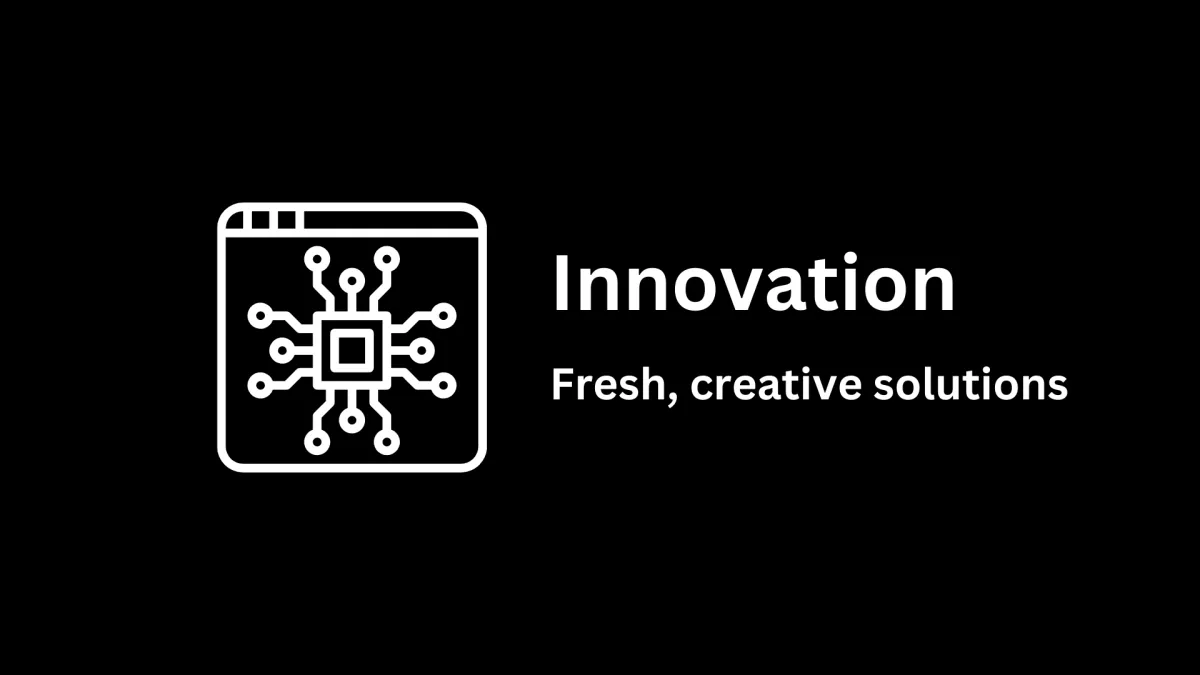Marketing Digiverse News
MaketingDigiverse


Innovative and Unexpected Uses of AI in Business and Marketing in 2024
“The biggest part of our digital transformation is changing the way we think.” — Simeon Preston.”
Artificial Intelligence (AI) has rapidly moved from a niche technology to the backbone of many industries, revolutionizing business and marketing in ways previously unimaginable. By 2024, its applications have stretched far beyond automation and predictive analytics, permeating new domains in creative, ethical, and strategic dimensions. While AI’s role in optimizing operations, customer engagement, and decision-making is well known, it’s the unexpected and innovative uses that are driving significant disruption in business models and marketing strategies today.
AI-Driven Hyper-Personalization in Marketing
One of the most striking innovations of AI in marketing is the hyper-personalization of customer experiences, creating more nuanced and relevant interactions than ever before. Traditional marketing segmentation based on demographics has given way to AI’s ability to analyze real-time behavioral data, creating deeply individualized content, products, and services.
AI-driven hyper-personalization harnesses machine learning algorithms and data points, such as browsing history, purchase behavior, and even sentiment analysis from social media, to tailor marketing strategies for each individual. For example, Spotify’s “Discover Weekly” playlists and Netflix’s content recommendations are powered by AI algorithms that understand user preferences at a granular level, increasing customer retention and satisfaction. In 2024, businesses are expanding this approach beyond recommendations. AI can now dynamically generate personalized advertisements, product pricing, and email content in real time based on customer interactions, creating an ever-evolving, tailor-made user journey.
A particularly innovative case is the rise of AI-powered “customer twins”—virtual profiles that predict a consumer’s needs and behavior before they arise. These digital twins are being deployed in retail, travel, and healthcare industries to anticipate customer requests, preemptively suggesting solutions or offers that fit their lifestyle. The accuracy and timeliness of these predictions significantly enhance customer loyalty and conversion rates.
Generative AI for Creative Marketing
Generative AI tools such as OpenAI's GPT series or Adobe's Firefly are transforming the creative aspect of marketing by generating content that feels human-made. These tools have evolved to create everything from articles, social media posts, and product descriptions to original images, video content, and even music. While early AI-generated content may have felt rudimentary or formulaic, advancements in natural language processing (NLP) and image recognition in 2024 allow AI to produce high-quality, contextually relevant materials that can mimic different tones and styles.
In the world of marketing, AI-driven creativity is enabling marketers to produce a massive volume of personalized, high-quality content at scale, while also experimenting with formats and ideas that might not have been feasible with human creators alone. Take, for instance, Coca-Cola’s collaboration with OpenAI in 2023 to create AI-generated marketing campaigns that combine text, visuals, and interactive content, each tailored to specific consumer segments. This use of generative AI has proven to be both cost-efficient and creatively innovative, reducing campaign production time from months to mere days.
Additionally, AI is now being used to craft entire marketing campaigns autonomously. By analyzing historical campaign data and audience responses, AI platforms like Jasper and Copy.ai can develop compelling narratives, branding strategies, and product positioning with minimal human input. In 2024, this has freed marketers to focus on higher-level strategy and customer insights while letting AI handle the more tedious and time-consuming content generation.
AI and Predictive Consumer Behavior Models
While predictive analytics in marketing is not new, AI's capabilities in 2024 have refined these predictions to be incredibly precise and actionable. In the realm of consumer behavior, AI now uses multi-channel data from websites, social media, in-store interactions, and IoT devices to predict consumer needs before they are consciously realized by the customer themselves.
For example, Amazon's recommendation engine has long been a cornerstone of its e-commerce success. However, in 2024, companies like Amazon are advancing into anticipatory shipping, where AI predicts which products customers are likely to order next and ships them to regional distribution centers before the purchase is even made. By leveraging machine learning models trained on billions of data points, companies are drastically improving their inventory management and customer delivery times.
Another innovative application of AI in predictive modeling is in subscription-based services. AI algorithms can now predict when a customer might consider canceling their subscription, based on usage patterns, sentiment analysis from customer service interactions, or market trends. Netflix, for example, uses AI to identify at-risk subscribers and offers them personalized discounts or previews of upcoming content to retain them. This is far beyond traditional churn prediction; AI is becoming proactive in understanding and shaping customer decisions.
AI as a Decision-Making Partner in Business Strategy
In 2024, businesses are moving beyond simply using AI as a tool for operational efficiency. AI has now evolved into a decision-making partner, providing insights and recommendations that shape strategic directions. AI’s ability to process vast datasets in real time and recognize patterns invisible to human analysts is revolutionizing business intelligence (BI) platforms.
Companies like Salesforce and IBM are leading the charge with AI-driven BI tools that not only present insights but also suggest actionable strategies. Salesforce’s Einstein AI, for instance, offers predictive analytics that guide sales teams on which leads to prioritize, based on likelihood to convert, and provides the best communication strategies for specific clients. This has resulted in improved sales efficiency, reduced costs, and more focused marketing efforts.
Moreover, AI’s capacity for scenario simulation allows companies to model the potential outcomes of different strategic decisions. By simulating market conditions, customer behavior, and competitor actions, AI can provide executives with detailed risk assessments and opportunities, which have become vital for making informed, long-term decisions. Whether it's determining the best location for a new store or assessing the viability of entering a new market, AI’s predictive prowess is now a cornerstone of strategic planning in 2024.
Ethical AI and Trust-Centric Marketing
In an era of growing concerns around privacy, data security, and ethical AI usage, businesses are embracing AI to build trust with consumers by ensuring transparency and ethical standards. AI is being deployed to manage privacy compliance, monitor for bias in decision-making processes, and ensure the responsible use of customer data. In 2024, trust-centric AI is not just a regulatory compliance tool but a powerful marketing differentiator.
For instance, companies like Microsoft and IBM are at the forefront of AI ethics, developing frameworks for responsible AI that include guidelines on transparency, fairness, and accountability. These frameworks are not only guiding internal AI development but also being leveraged as a competitive advantage in the market. Businesses are now using their ethical AI practices as part of their brand messaging, marketing themselves as transparent and trustworthy stewards of consumer data.
Furthermore, AI-driven tools are being used to help businesses remain compliant with global data protection regulations, such as the GDPR and California Consumer Privacy Act (CCPA). These systems automatically ensure that customer data is anonymized where necessary, securely stored, and only used in ways that comply with consent agreements. This ensures that businesses remain legally compliant while marketing their services as privacy-conscious, thus gaining consumer trust.
AI-Enhanced Customer Support and Human-AI Collaboration
In 2024, customer support has undergone a fundamental shift, with AI transforming how businesses interact with and serve their customers. AI chatbots and virtual assistants, powered by advanced natural language processing (NLP), are capable of handling increasingly complex customer inquiries with minimal human intervention. The key innovation here is the blending of AI and human expertise, where AI handles routine inquiries, and human agents focus on more complicated, nuanced customer service tasks.
For instance, AI-driven customer service platforms like Zendesk and Intercom use sophisticated algorithms to triage customer queries, instantly providing answers or routing customers to the appropriate department. AI-driven sentiment analysis helps these platforms prioritize urgent or emotionally charged inquiries, ensuring that human agents can step in when empathy and deep problem-solving are required. This approach not only increases efficiency but also creates a more seamless customer experience, as customers don’t have to wade through irrelevant options or long wait times.
An innovative aspect of AI in customer service is its use in preemptive support. AI algorithms can analyze a user’s behavior on a website or app, identifying potential pain points before they escalate into customer complaints. If a user is struggling with a particular feature, AI can trigger a support message or direct the user to a relevant help article, solving the issue in real-time. This preemptive, personalized support improves customer satisfaction and reduces churn.
AI for Sustainability and Corporate Responsibility
In 2024, AI is increasingly being harnessed to support corporate sustainability goals, a growing area of importance for businesses facing regulatory and consumer pressures. AI is playing a critical role in optimizing energy use, reducing waste, and making supply chains more sustainable.
For example, AI-powered systems are helping companies like Google and Amazon reduce their carbon footprints by optimizing data center energy usage. Google’s DeepMind has developed an AI model that monitors and optimizes energy consumption across its data centers, resulting in a 15% reduction in energy used for cooling. This AI-driven efficiency allows businesses to not only save on costs but also promote their sustainability efforts, which has become a key marketing message for eco-conscious consumers.
Moreover, AI is being employed to improve the traceability of supply chains, ensuring that businesses are sourcing materials ethically and sustainably. By analyzing supplier data, AI can identify areas of risk and provide recommendations for more sustainable sourcing practices. Blockchain-based AI solutions are also being used to track products from raw material to final sale, ensuring transparency and accountability in the supply chain—an invaluable tool for companies looking to appeal to consumers increasingly concerned about ethical consumption.
Conclusion: AI as a Catalyst for Innovation
By 2024, AI has evolved from a technological enhancement into a catalyst for business innovation and transformation. From hyper-personalization and generative content creation to ethical AI and sustainability, businesses are leveraging AI in unexpected ways that are reshaping industries. AI's ability to predict, personalize, and optimize at unprecedented scales is pushing the boundaries of what is possible in marketing and business strategy.
As AI continues to evolve, businesses will need to not only embrace these technologies but also ensure they are used responsibly. The future of AI in business and marketing lies not just in technological advancement, but in how businesses balance innovation with ethics, creativity with data, and automation with human oversight. In doing so, AI will continue to unlock new opportunities and drive meaningful change across industries.
References and Resources:
Spotify Discover Weekly and Netflix AI Algorithms:Simonite, T. (2019). How Spotify and Netflix Use AI to Understand What You Want to Watch and Listen To. Wired. Link
Generative AI:OpenAI. (2023). Generative Pretrained Transformers. LinkAdobe Firefly: Creative AI and Marketing. Link
Predictive Analytics and Amazon:Amazon’s anticipatory shipping patent. (2018). Link
AI in Customer Service:Zendesk and AI-driven support. (2023). Link
Ethical AI:Microsoft’s Responsible AI Framework. Link
By leveraging AI thoughtfully, businesses in 2024 are not just optimizing processes but rethinking their entire approach to innovation and engagement.
We Are Happy to Help
Unlock the full potential of your AI business and marketing efforts with MarketingDigiverse™! Schedule a complimentary 30-minute Strategy Session today and discover how to optimize your campaigns for maximum impact. Our expert team will analyze your current strategies, identify key opportunities for growth, and provide actionable insights to help you drive measurable results. Whether you're looking to increase conversions, boost brand awareness, or enhance customer engagement, this personalized session is designed to get you on the path to success. Don't miss this opportunity to elevate your marketing—schedule your free AI strategy session and receive a complimentary copy of the new eBook, "Driving Profitability: How KPIs Turn Data into Dollars". Or Email [email protected], enter "KPI eBook" in the Subject Line, to receive a copy in your inbox.
#kpi #marketingkpi #businessperformance #businessmanagement Follow MarketingDigiverse

Other Highly Regarded Resources





Artificial Intelligence:
+ Boosts Efficiency through Automation: Streamlines operations, reduces costs, and enhances productivity by automating routine tasks.
+ Improves Customer Experience: Delivers personalized, seamless interactions that increase customer satisfaction and loyalty.
+ Enables Data-Driven Decisions: Provides actionable insights through real-time data analytics, driving smarter business strategies.



Contact Us
MaketingDigiverse
2201 N Lakewood Blvd, D108, Long Beach CA 90815
(626) 637-7603
Connect
© 2012-2025 MarketingDigiverseTM | Affiliate of SoCal Digital Studio |
All Rights Reserved
